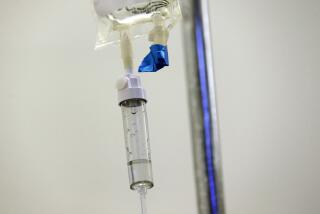Worldwide medical isotope shortage threatens use of cardiac stress tests
- Share via
Nuclear reactors don’t just create energy; a few also create medical isotopes vital to medical tests that doctors have come to rely on. The Radiological Society of North America estimates at least 80% of the nearly 20 million nuclear medicine procedures performed in the U.S. each year use technetium-99m, also known as Tc-99.
The worldwide radiopharmaceutical shortage, as its called, has affected the ability of doctors to perform cardiac stress tests that use nuclear tracers. Tim Darragh in the Allentown Morning Call writes about doctors in the Lehigh Valley who have turned to MRIs and stress echocardiograms to replace the Tc-99 tests.
“Without the construction of new nuclear facilities in the United States in decades, doctors here have had to rely on technetium processed primarily in the Netherlands and Canada,” Darragh writes. “But the Canadian facility has had to be taken off line increasingly for repairs, further constricting supply of a material that is subject to radioactive decay.”
And read how the shortage started in this earlier Los Angeles Times’ story: “Isotope shortage means a healthcare crisis: The radioisotope is needed to scan for heart disease and cancer. Two nuclear reactors that produce it have been shut down, severely limiting the supply, and alternatives are scant.”
What options do you have? Medline Plus offers an overview of diagnostic imaging.
--Mary Forgione






